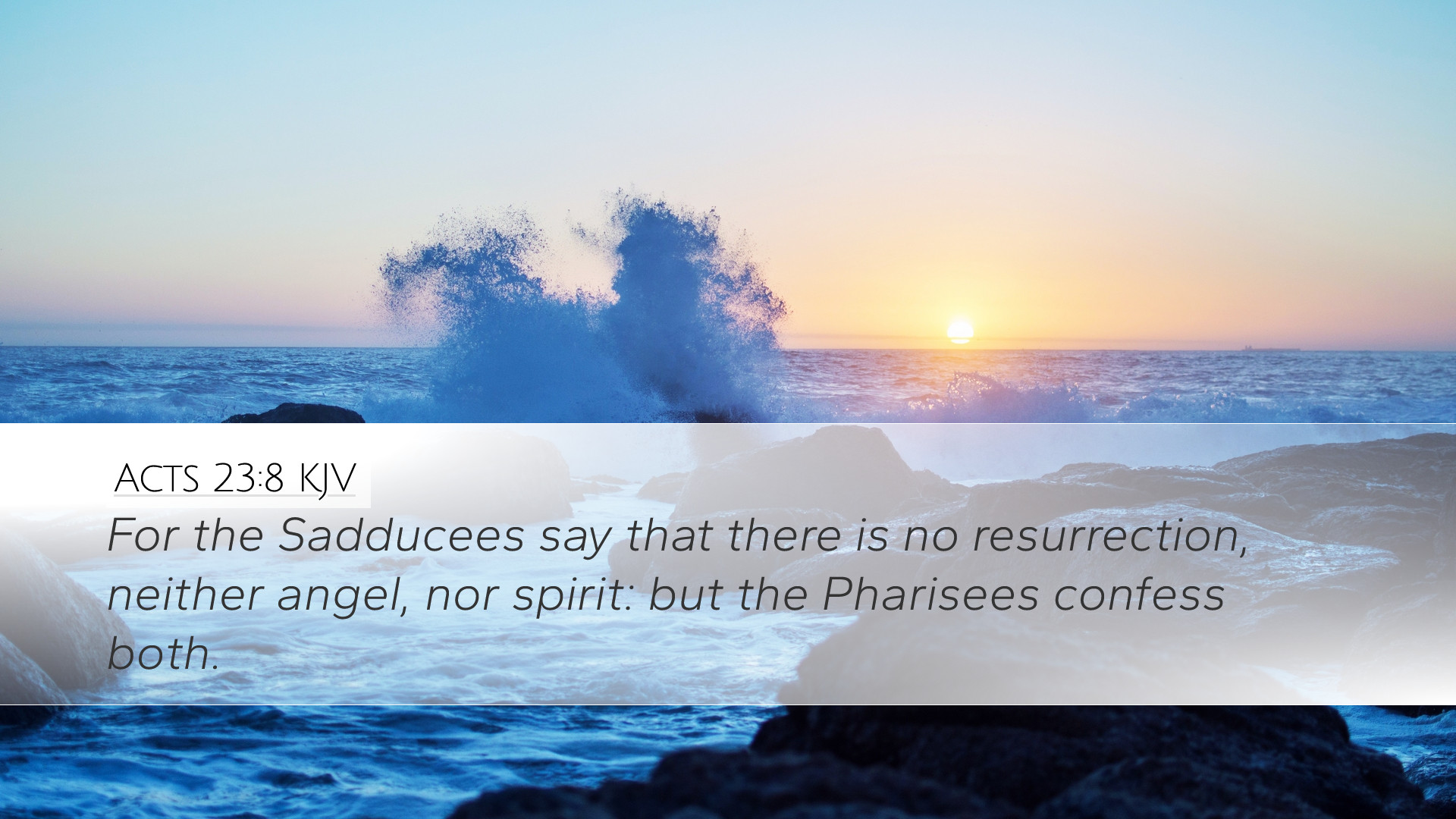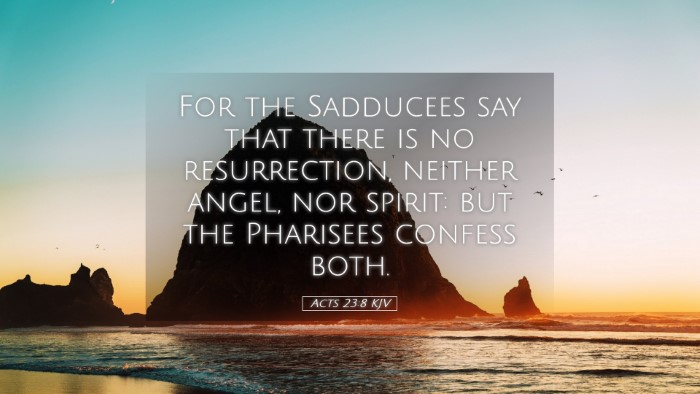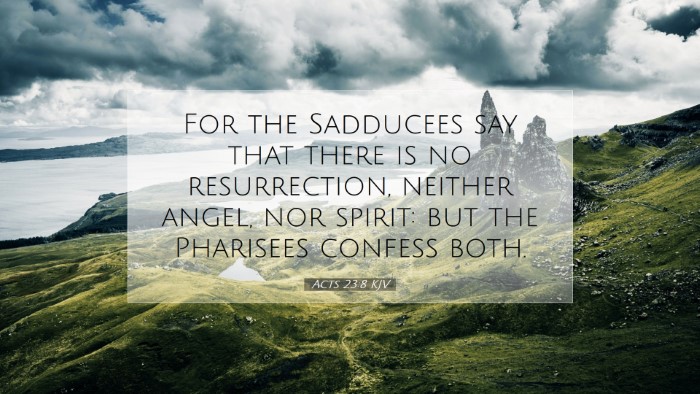Commentary on Acts 23:8
Text of Acts 23:8 (KJV): "For the Sadducees say that there is no resurrection, neither angel, nor spirit: but the Pharisees confess both."
Introduction
The passage of Acts 23:8 is rich in theological implications and provides a glimpse into the diverse beliefs within the Jewish religious landscape during the early Christian era. This commentary will explore the significance of the resurrection as well as the contrasting views of the Sadducees and Pharisees, utilizing insights from public domain commentaries.
Contextual Background
This verse occurs at a pivotal moment in the life of the Apostle Paul. He is standing before the Sanhedrin, the Jewish ruling council, defending his ministry and the resurrection of Jesus Christ. Understanding the beliefs of the Sadducees and Pharisees helps to appreciate the depth of Paul's situation.
The Sadducees
Definition: The Sadducees were a sect within Judaism known for their strict adherence to the Pentateuch (the first five books of the Bible) and their denial of oral traditions.
Beliefs: They denied the resurrection, believed there were no angels or spirits, and emphasized free will over divine intervention.
- Matthew Henry: Notes that the Sadducees, rooted in a literal interpretation of the Law, dismiss the idea of the resurrection, arguing that life ends with death.
- Albert Barnes: Highlights that the Sadducees’ disbelief stems from their rationalist approach, rejecting the supernatural elements of faith.
The Pharisees
Definition: In contrast, the Pharisees were more liberal regarding the Scriptures, allowing for oral traditions and interpretations of the Law.
Beliefs: They believed in the resurrection of the dead and the existence of angels and spirits, which created a theological divide with the Sadducees.
- Adam Clarke: Describes the Pharisees’ beliefs as foundational to Jewish hope, affirming the resurrection as essential to their faith and doctrine.
- Matthew Henry: Remarks that the Pharisees, focusing on a more expansive understanding of Scripture, embraced the concept of resurrection, influenced by their belief in God's power to intervene in the world.
Theological Implications
This verse not only portrays a theological debate but also sets the stage for understanding the core tenets of early Christianity, particularly the belief in resurrection. Paul’s ministry is inherently linked to this belief, which he famously articulates in 1 Corinthians 15, where he emphasizes that without the resurrection, the faith of Christians would be futile.
Resurrection in Early Christianity
The resurrection of Jesus is central to the Christian message. It serves as a cornerstone of faith that Paul ardently defends. The tension between the views of the Sadducees and Pharisees reflects broader challenges faced by early Christians.
- Historical Tension: Paul, as a former Pharisee, leverages his understanding of both sects to articulate the truth about Christ’s resurrection.
- Faith vs. Works: The debate also symbolizes the shift from a works-based understanding of righteousness to one achieved through faith in Christ.
Application for Today
For modern readers, this passage serves as a reminder of the importance of doctrinal beliefs. The nature of resurrection remains a contentious topic, not only among religious groups but also within the broader Christian community.
- Encouragement for Believers: Embrace the belief in resurrection as a source of hope and assurance in life after death.
- Challenge for Theologians: Engage with these diverse beliefs to facilitate respectful dialogue that leads to deeper understanding among different denominations.
Conclusion
Acts 23:8 opens a window into the historical and theological debates that shaped early Christianity. By understanding the distinctions between the Sadducees and Pharisees, readers gain valuable insights into the faith of the early Church and the enduring significance of the resurrection. This engagement calls for ongoing reflection and dialogue among pastors, students, and scholars as they interpret scripture in light of contemporary challenges.


